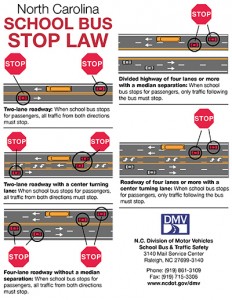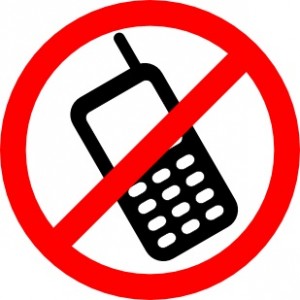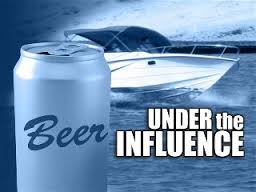Back to School – School Bus Safety
Tuesday, August 30th, 2016 This week, many North Carolina children said goodbye to their summer break and began the 2016-2017 school year. For many students, this involves riding a school bus to and from school. There are thousands of school buses traveling North Carolina highways daily, which means that it is incredibly important for drivers to pay attention to the road and avoid distractions in order to keep everyone safe.
This week, many North Carolina children said goodbye to their summer break and began the 2016-2017 school year. For many students, this involves riding a school bus to and from school. There are thousands of school buses traveling North Carolina highways daily, which means that it is incredibly important for drivers to pay attention to the road and avoid distractions in order to keep everyone safe.
It is extremely important for drivers to be cautious, aware, and patient on the road, especially around crosswalks, schools, and buses at this time of the year.
Drivers are required by law to stop when a school bus is loading or unloading passengers, but it is also important for parents to inform their children to stop and look both ways when getting on or off of the school bus, just in case a driver does not stop for the stopped bus for any reason.
Everyone must stop if it is a:
- Two-lane road (with or without turning lane)
- Four-lane road with no separation
- Center turn lane with less than 4 lanes
Only drivers following the school bus need to stop when there is a:
- Center turn lane with at least four other lanes
- Four lane road or more with a median or some sort of physical boundary
According to North Carolina State Law (N.C.G.S. 20-217), a driver must stop when a school bus is displaying its mechanical stop signal or flashing red lights and the bus is stopped for the purpose of receiving or discharging passengers, the driver of any other vehicle that approaches the school bus from any direction on the same street, highway, or public vehicular area shall bring that other vehicle to a full stop and shall remain stopped. The driver of the other vehicle shall not proceed to move, pass, or attempt to pass the school bus until after the mechanical stop signal has been withdrawn, the flashing red stoplights have been turned off, and the bus has started to move.
Consequences for motorists who fail to comply with school bus safety rules:
- $500 penalty and five-point penalty to your driver’s license if you pass a stopped school bus
- Minimum fine of $1,000 and a Class I felony if you pass a stopped school bus and strike someone
- Fine of $2,500 and a Class H felony if someone is killed
If you or somebody you know receives a citation for not complying with school bus safety rules or face any other kind of traffic or criminal charges in our area, Collins Law Firm can help. Please give us a call at 910-793-9000 for a confidential consultation.
By Kimberlin Murray, Legal Assitant at Collins Law Firm

 Memorial Day is right around the corner, and for those of us near the coast, this means considerably higher traffic along our thoroughfares as vacationers flock to the beach for the holiday weekend. Ranking as one of the top ten most visited states for domestic travel, NC commonly experiences increased roadway congestion. What this weekend should also remind us of, however, is the extreme importance of automobile safety as our loved ones submit themselves to the mercy of their fellow drivers among our state’s highways. This sentiment is echoed by Governor Pat McCrory, who has officially declared May Seat Belt Safety Awareness Month. At 42% percent, almost half of passenger vehicle fatalities last year can be attributed to drivers or passengers not wearing seat belts.
Memorial Day is right around the corner, and for those of us near the coast, this means considerably higher traffic along our thoroughfares as vacationers flock to the beach for the holiday weekend. Ranking as one of the top ten most visited states for domestic travel, NC commonly experiences increased roadway congestion. What this weekend should also remind us of, however, is the extreme importance of automobile safety as our loved ones submit themselves to the mercy of their fellow drivers among our state’s highways. This sentiment is echoed by Governor Pat McCrory, who has officially declared May Seat Belt Safety Awareness Month. At 42% percent, almost half of passenger vehicle fatalities last year can be attributed to drivers or passengers not wearing seat belts. The Good Samaritan Law (now effective in 20 states) went into effect in North Carolina on April 9, 2013. The basis for the law is overdose prevention and survival – get help, CALL 911! Individuals who experience or witness an overdose can now seek help for the victim without being prosecuted for small amounts of drugs/drug paraphernalia, or alcohol for persons under 21 years old under N.C. Gen. Stat. § 18B-302.2 Medical treatment; limited immunity. Additionally, as of August 1, 2015, a person who seeks medical assistance for someone experiencing a drug overdose cannot be considered in violation of probation, condition of parole, or post-release. Likewise, the victim is protected. In order for the immunity to apply, however, the 911 caller must provide his or her name, and act in good faith when seeking assistance, and reasonably believe that he or she is the first person to call for help.
The Good Samaritan Law (now effective in 20 states) went into effect in North Carolina on April 9, 2013. The basis for the law is overdose prevention and survival – get help, CALL 911! Individuals who experience or witness an overdose can now seek help for the victim without being prosecuted for small amounts of drugs/drug paraphernalia, or alcohol for persons under 21 years old under N.C. Gen. Stat. § 18B-302.2 Medical treatment; limited immunity. Additionally, as of August 1, 2015, a person who seeks medical assistance for someone experiencing a drug overdose cannot be considered in violation of probation, condition of parole, or post-release. Likewise, the victim is protected. In order for the immunity to apply, however, the 911 caller must provide his or her name, and act in good faith when seeking assistance, and reasonably believe that he or she is the first person to call for help. According N.C.G.S. § 20-137.4., it is unlawful for any person to drive a motor vehicle while using his or her mobile telephone to text or email, with just a few exceptions as follows: if the driver is parked or stopped, if the means of communication are required for law enforcement to fulfill their duty/duties, for the use of factory-installed or GPS systems, or with the use of voice technology. Everyone knows that texting while driving is illegal, much thanks to the many preventative texting while driving campaigns have launched nationally such as “It Can Wait, “ and the “Safe Texting Campaign.” But what about all of the other distractions that put drivers at risk, like taking selfies, Instagramming, and Facebook? Although just as distracting and fatal, these types of behaviors are rarely reprimanded by law enforcement officers because there are no clear cut statutes that define these violations.
According N.C.G.S. § 20-137.4., it is unlawful for any person to drive a motor vehicle while using his or her mobile telephone to text or email, with just a few exceptions as follows: if the driver is parked or stopped, if the means of communication are required for law enforcement to fulfill their duty/duties, for the use of factory-installed or GPS systems, or with the use of voice technology. Everyone knows that texting while driving is illegal, much thanks to the many preventative texting while driving campaigns have launched nationally such as “It Can Wait, “ and the “Safe Texting Campaign.” But what about all of the other distractions that put drivers at risk, like taking selfies, Instagramming, and Facebook? Although just as distracting and fatal, these types of behaviors are rarely reprimanded by law enforcement officers because there are no clear cut statutes that define these violations. The Wrightsville Beach 32nd annual North Carolina Holiday Flotilla is upon us! Many Wilmingtonians look forward to this water-based event every Thanksgiving weekend, as family and friends come together to eat, drink, and celebrate the holiday together. Whether you have a boat entered in the contest or will be watching from land, it may be beneficial for you to be up-to-date on North Carolina’s laws against Boating While Impaired, commonly referred to as “BUI” or “BWI”.
The Wrightsville Beach 32nd annual North Carolina Holiday Flotilla is upon us! Many Wilmingtonians look forward to this water-based event every Thanksgiving weekend, as family and friends come together to eat, drink, and celebrate the holiday together. Whether you have a boat entered in the contest or will be watching from land, it may be beneficial for you to be up-to-date on North Carolina’s laws against Boating While Impaired, commonly referred to as “BUI” or “BWI”. As a prelude to this text, please keep in mind that we are referencing DWIs currently eligible for expunction (i.e., those convicted of a DWI that were released from supervision 15 or more years ago) under N.C.G.S. § 15A-145.5.
As a prelude to this text, please keep in mind that we are referencing DWIs currently eligible for expunction (i.e., those convicted of a DWI that were released from supervision 15 or more years ago) under N.C.G.S. § 15A-145.5. It’s finally here, a three-day weekend! Although for most of us Labor Day weekend marks unofficial end to summer, it’s also a great time to catch up with family and friends at the beach and spend some quality family time before it starts to cool off.
It’s finally here, a three-day weekend! Although for most of us Labor Day weekend marks unofficial end to summer, it’s also a great time to catch up with family and friends at the beach and spend some quality family time before it starts to cool off. Independence Day originally started as a celebration for the United States liberation from Great Britain. Over the years, culture has shifted, and this has become a day when people of all ages flock towards the beaches for relaxation and time with family and friends. Popular hangout spots, such as Masonboro Island, Mason’s Inlet, and the North End at Carolina Beach, have drawn crowds to Wilmington. Due to an increase in safety concerns in the area during popular holidays, such as Memorial Day and July the fourth, law enforcement has increased patrols and monitoring of the waterways, beaches, and surrounding areas.
Independence Day originally started as a celebration for the United States liberation from Great Britain. Over the years, culture has shifted, and this has become a day when people of all ages flock towards the beaches for relaxation and time with family and friends. Popular hangout spots, such as Masonboro Island, Mason’s Inlet, and the North End at Carolina Beach, have drawn crowds to Wilmington. Due to an increase in safety concerns in the area during popular holidays, such as Memorial Day and July the fourth, law enforcement has increased patrols and monitoring of the waterways, beaches, and surrounding areas. The aroma of hotdogs and hamburgers is soon going to fill the air! Memorial Day is upon us! Most know this holiday as one filled with family cookouts and time spent at the beach. Wilmington natives avoid traffic, as they know this city is a premier destination for those all over the state. For tourist’s driving to the local area, it is advised to leave home early in order to help avoid traffic that occurs on the highways. This year, the NCDOT is halting construction projects on major highways in an effort to help its citizens reach their holiday destinations safely and without strife. According to the NCDOT website, NCDOT will put on hold most construction projects along interstate, N.C. and U.S. routes from 4 p.m. on Friday, May 22, until 9 a.m. on Tuesday, May 26, with these exceptions:
The aroma of hotdogs and hamburgers is soon going to fill the air! Memorial Day is upon us! Most know this holiday as one filled with family cookouts and time spent at the beach. Wilmington natives avoid traffic, as they know this city is a premier destination for those all over the state. For tourist’s driving to the local area, it is advised to leave home early in order to help avoid traffic that occurs on the highways. This year, the NCDOT is halting construction projects on major highways in an effort to help its citizens reach their holiday destinations safely and without strife. According to the NCDOT website, NCDOT will put on hold most construction projects along interstate, N.C. and U.S. routes from 4 p.m. on Friday, May 22, until 9 a.m. on Tuesday, May 26, with these exceptions: There are many risks associated with the liberal consumption of alcohol. The most significant risk is when a person hazards a motor vehicle crash due to having too high a concentration of alcohol in their system while driving. Since 1993, it has been illegal to drive with a BAC of 0.08% or higher in the state of North Carolina. Even so, almost 2,000 people under 21 are killed yearly in car crashes in which alcohol was involved .
There are many risks associated with the liberal consumption of alcohol. The most significant risk is when a person hazards a motor vehicle crash due to having too high a concentration of alcohol in their system while driving. Since 1993, it has been illegal to drive with a BAC of 0.08% or higher in the state of North Carolina. Even so, almost 2,000 people under 21 are killed yearly in car crashes in which alcohol was involved .